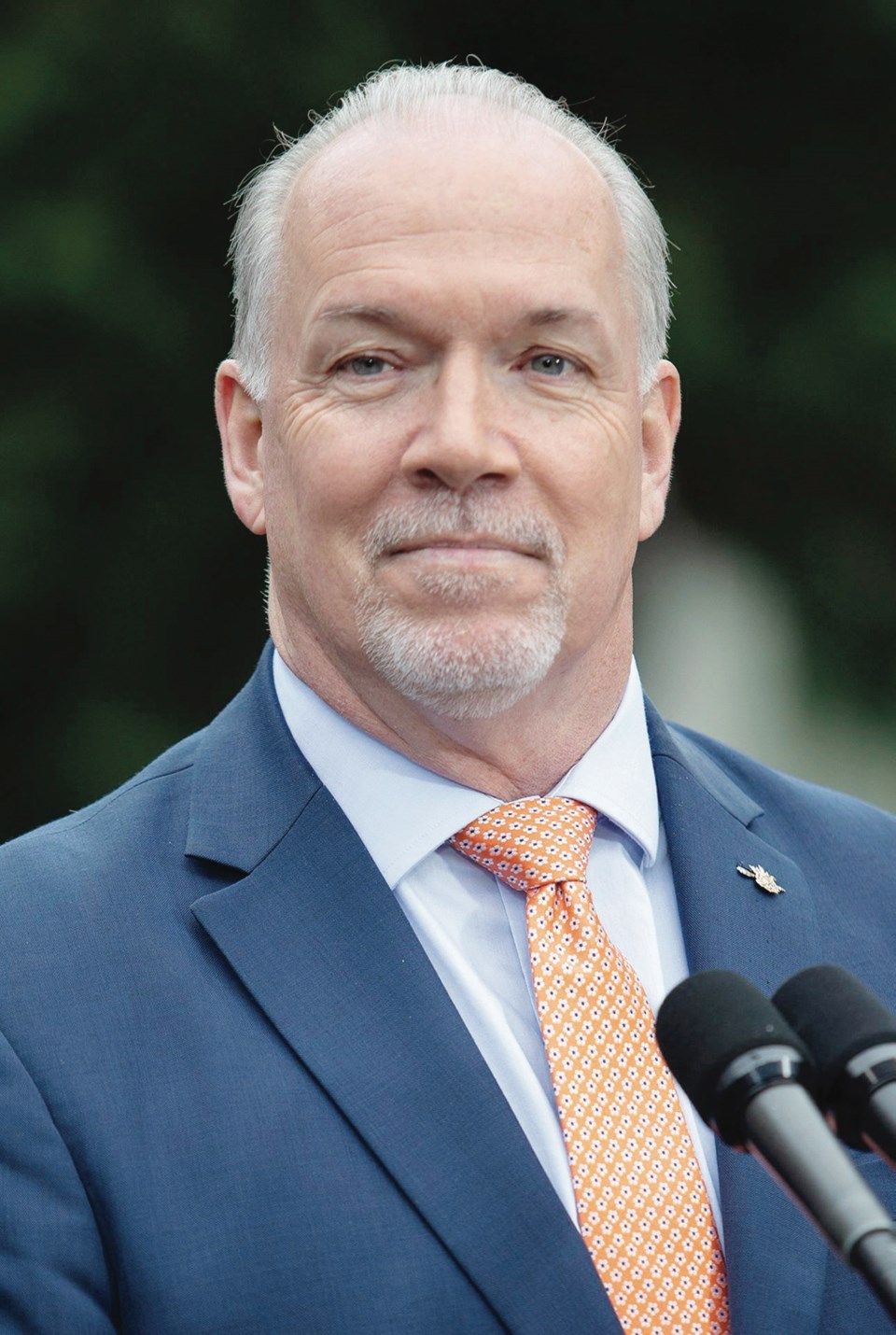B.C. Premier John Horgan says he’s confident he can work with Alberta’s new premier-elect Jason Kenney, despite a threat from Kenney that B.C. will face “consequences” for continuing to obstruct oil pipelines.
Horgan said he and Kenney spoke briefly by phone Wednesday, after Kenney’s United Conservative Party won a majority government in Alberta’s election the previous night.
“I know the challenges that he faces … the work he has to do putting in place a cabinet, going through the transition from one government to another government,” Horgan said.
“We had a positive conversation. We agreed that we’ll meet in the short term. We will be in Saskatoon … at a first ministers’ conference in the months ahead. I’m confident we’ll continue to work in a positive way.”
Kenney, too, extended an olive branch of negotiations — before repeating Wednesday that he will enact the previous Alberta NDP government’s so-called turn-off-the-taps legislation and use it as a bargaining chip with Horgan. Cutting off Alberta oil would cause gasoline prices in B.C. to soar.
Horgan’s B.C. government has said it will use every tool at its disposal to block the expansion of the Trans Mountain oil pipeline expansion project from Edmonton to Burnaby, including court challenges and its own potential legislation to regulate increased shipments of bitumen from Alberta. The B.C. Court of Appeal has reserved decision on the reference case on B.C.’s power to do so.
“I think Premier Horgan knows very well that we are serious about defending our economic interests,” Kenney told reporters in Edmonton. “It’s not our intention to begin reducing energy shipments to British Columbia, but to have the power to do so.
“The Horgan government called the bluff on the Alberta NDP’s turn off the taps legislation. They said publicly that they’d received assurances that the current Alberta government did not intend to use Bill 12.
“We’re going to change that fact by proclaiming into law Bill 12 on the afternoon of April 30. And then I think we sit down with the government of British Columbia with greater strength and clarity about the tools that Alberta can use to defend our vital economic interests. We have a number of other possible consequences for a campaign of obstruction.”
Kenney’s new cabinet can proclaim the law with the stroke of a cabinet pen. It does not require new legislation from the Alberta government, which is expected to reconvene in late May.
B.C.’s attempt to challenge the constitutionality of Bill 12 was thrown out by an Alberta court because the law had not been proclaimed. B.C. Attorney General David Eby has said he’s ready with another court challenge should the bill become law.
Kenney said he hopes to find areas upon which he can work with Horgan, including support for a liquefied natural gas industry and B.C.’s $40-billion LNG Canada project in Kitimat.
“So while it appears we will have a continuing disagreement with them on Trans Mountain, we will try to find areas of common ground, such as on LNG,” Kenney said.
Kenney’s victory in Alberta puts in place conservative premiers in Manitoba, Saskatchewan, Ontario and New Brunswick, with possible allies for Alberta also in Quebec and the Northwest Territories. It also ramps up opposition to the federal Liberal government and Prime Minister Justin Trudeau’s carbon tax, which B.C. supports.
Quebec Premier François Legault congratulated Kenney on his victory, but said Quebec’s position on oil pipelines hasn’t changed.
All parties in Quebec’s legislature oppose any new oil pipelines, Legault said.
In Ontario, Doug Ford welcomed Kenney’s opposition to the federal carbon tax.
Ford stood in the legislature Wednesday to congratulate Kenney, with the rest of the Tory caucus rising for a standing ovation.
“We see just a blue wave going across this country from west to east,” Ford said. “We’re building an anti-carbon tax alliance like this country has never seen.”
Kenney, who served as a cabinet minister under former Conservative prime minister Stephen Harper, said he had a cordial conversation with Trudeau.
“Just like with B.C. and Quebec, we will begin with a path of diplomacy and try to find common ground,” he said. “We hope we don’t need to use more forceful measures to assert Alberta’s vital economic interests. But I think Prime Minister Trudeau knows that if we can’t get coastal access for our energy, this new government will vigorously stand up for Alberta.”
B.C. might be vulnerable to a short-term campaign with Alberta on its turn-off-the-taps legislation, but Kenney will soon find himself more focused on fighting Trudeau in this fall’s federal election, said Patrick Smith, a professor of political science at Simon Fraser University and the school’s director of the Institute for Governance Studies.
“Kenney will certainly, if he thinks it’s advantageous and appeals to his base, push B.C. on its opposition,” said Smith. “But I don’t think it’s going to be his first fight. I think his first fight is going to be with Ottawa between now and the election. The carbon pricing issue is going to be more front and centre. He’ll leave John Horgan and company till the fall and see where things are.”
“The notion is they’ll have started wok on Trans Mountain by the fall — and if they haven’t, I think the game changes a bit more to being bumpy for B.C.”
B.C. Opposition Liberal Leader Andrew Wilkinson said the dispute between Alberta and B.C. was started by the Horgan government trying to block the pipeline, and Horgan must now try to diffuse the disagreement.
“John Horgan should be getting on a plane to Edmonton and sitting down with Jason Kenney to solve this problem for the benefit of both British Columbia and Albertans,” he said.
— With files from CP



